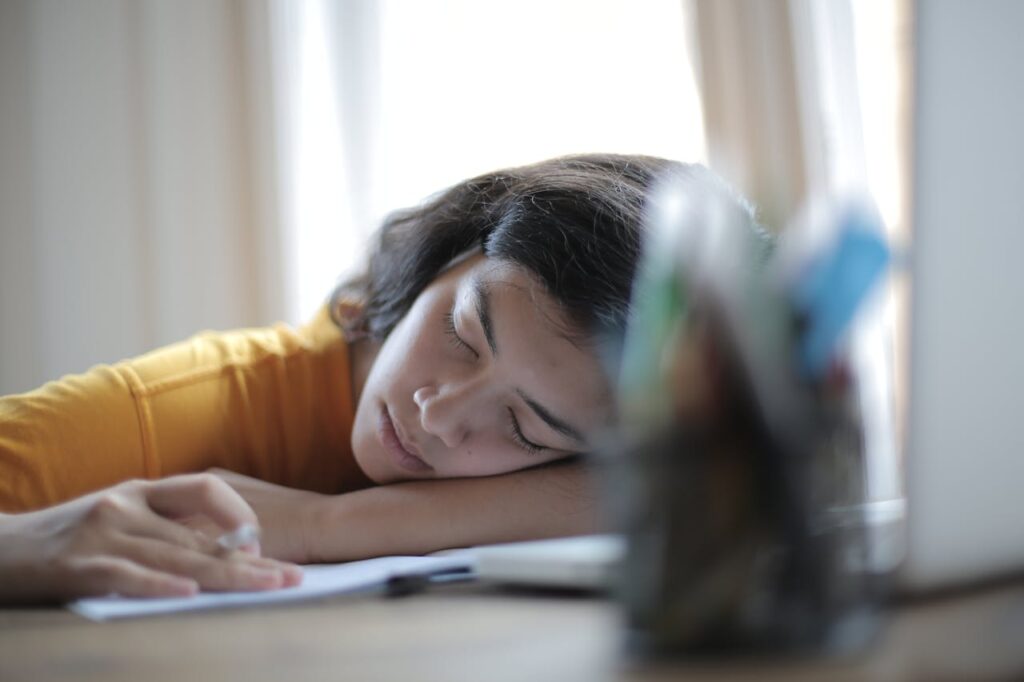By Vanessa Mangru-Kumar SWNS
NEWS COPY W/ VIDEO + INFOGRAPHIC
The average American spends 1,460 hours a year feeling tired, according to new research.
A survey of 2,000 adults looked at how they deal with their symptoms of tiredness and found that respondents feel tired four hours a day and nearly a third feel tired even more than average (31%).
In fact, a third of those surveyed “always” or “often” still feel tired even after a good night’s sleep.
Conducted by Talker Research for MD Live, the survey found that 58% said feeling tired often keeps them from enjoying life.
Fifty-eight percent of those surveyed said that tiredness has caused them to avoid social interactions, leading a third to skip events (34%) and 27% to cancel plans with family or friends.
For people living with chronic disease, it can be even worse. The survey also included 1,000 respondents who reported suffering from a chronic disease, including diabetes, obesity or hypertension, among other conditions.
Compared to those who do not suffer from a chronic disease, these respondents reported being tired two extra hours a day, avoiding social interaction more because of their illness (64% vs. 51%) and having a more difficult time enjoying life (66% vs 50%).
Dealing with these feelings trickles into the weekend for respondents, too, as the average American spends 27% of their weekend recuperating from the previous week.
For chronic disease sufferers, 40% have skipped events and a third (33%) have canceled plans with loved ones due to their feelings of extreme tiredness.
But recuperation doesn’t always mean relaxing. Respondents find themselves procrastinating chores (32%) and staying in bed (30%) when they feel tired.
Moreover, those surveyed shared that they end up skipping exercising (21%) or avoiding cooking (20%) when tiredness hits.
Still, 33% of those surveyed say they push through their feelings of tiredness.
While the average person says “I’m tired” out loud three times a day, many respondents prefer to hide their feelings from others. In fact, one in seven say “I’m fine” to others every day — even if they don’t always mean it.
Those who push through said they do so because they are concerned about things not getting done (54%) or feel that the tiredness will pass (23%).
Although tiredness slows them down, 35% admit they “rarely” or “never” think about the underlying reasons behind it. And 43% weren’t aware that there is a difference between tiredness and fatigue.
"Despite using words like ‘tired’ and ‘exhausted’ interchangeably, there are distinct and clinical differences between tiredness and fatigue," explains Dr. Maggie Williams, medical director for MD Live Virtual Primary Care. "Occasional tiredness can often be managed with better sleep habits and lifestyle changes, but fatigue is a persistent exhaustion that could signal underlying health issues that should be discussed with a doctor."
More than half of respondents (51%) are not convinced that fatigue is a serious health concern and 35% aren’t aware that fatigue can be linked to an underlying condition.
Yet, 88% identified having symptoms of fatigue regularly. The most common fatigue symptoms Americans experience are having very low energy (38%), trouble sleeping (37%), low motivation (33%), tired eyes (32%) and muscle pain/weakness (32%).
Respondents may even be overlooking some of the lesser-recognized symptoms of fatigue they’re experiencing, like poor memory (27%) and nervousness/anxiety (22%).
However, when they do have these feelings of tiredness, only 5% say they speak to a doctor about it. When it comes to fatigue, 66% say they have never spoken with a doctor about experiencing symptoms.
Knowledge may be key for respondents to understand more about their bodies. In fact, nearly a fifth of Americans are not sure if they suffer from fatigue (17%).
“If sleep-related issues or feelings of extreme tiredness begin to interfere with your quality of life, it’s important to consult a doctor. Before diagnosis, more than one-third of chronic disease sufferers noted they experienced extreme tiredness without realizing it was a symptom of their underlying condition,” notes Dr. Williams. “A doctor’s evaluation can help identify the root cause of any symptoms and develop an effective treatment plan.”
Survey methodology:
This random double-opt-in survey of 2,000 Americans, half of whom have a chronic disease was commissioned by MD Live between May 7 and May 13, 2024. It was conducted by market research company Talker Research, whose team members are members of the Market Research Society (MRS) and the European Society for Opinion and Marketing Research (ESOMAR).
